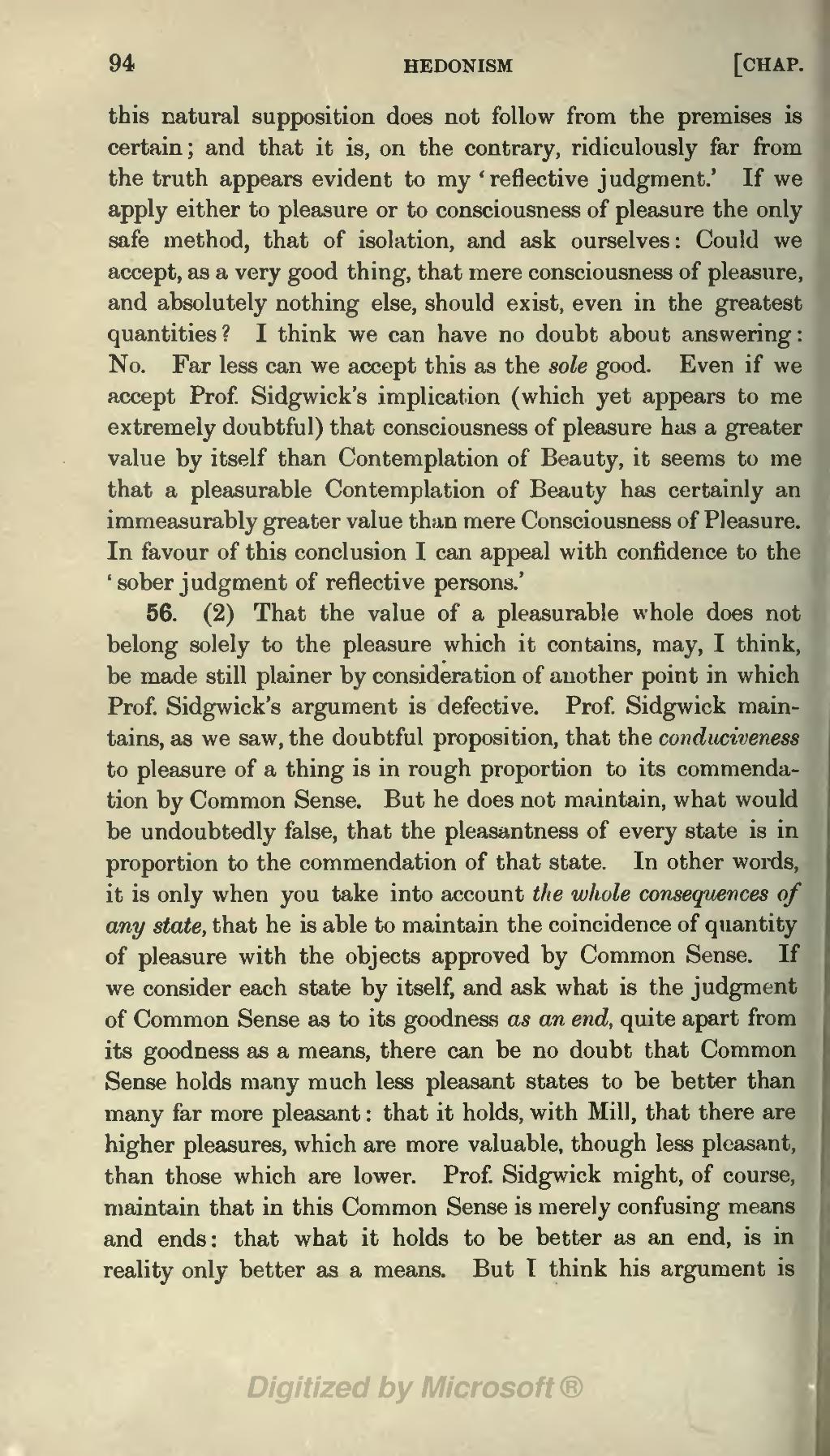this natural supposition does not follow from the premises is certain; and that it is, on the contrary, ridiculously far from the truth appears evident to my ‘reflective judgment.’ If we apply either to pleasure or to consciousness of pleasure the only safe method, that of isolation, and ask ourselves: Could we accept, as a very good thing, that mere consciousness of pleasure, and absolutely nothing else, should exist, even in the greatest quantities? I think we can have no doubt about answering: No. Far less can we accept this as the sole good. Even if we accept Prof. Sidgwick’s implication (which yet appears to me extremely doubtful) that consciousness of pleasure has a greater value by itself than Contemplation of Beauty, it seems to me that a pleasurable Contemplation of Beauty has certainly an immeasurably greater value than mere Consciousness of Pleasure. In favour of this conclusion I can appeal with confidence to the ‘sober judgment of reflective persons.’
56. (2) That the value of a pleasurable whole does not belong solely to the pleasure which it contains, may, I think, be made still plainer by consideration of another point in which Prof. Sidgwick’s argument is defective. Prof. Sidgwick maintains, as we saw, the doubtful proposition, that the conduciveness to pleasure of a thing is in rough proportion to its commendation by Common Sense. But he does not maintain, what would be undoubtedly false, that the pleasantness of every state is in proportion to the commendation of that state. In other words, it is only when you take into account the whole consequences of any state, that he is able to maintain the coincidence of quantity of pleasure with the objects approved by Common Sense. If we consider each state by itself, and ask what is the judgment of Common Sense as to its goodness as an end, quite apart from its goodness as a means, there can be no doubt that Common Sense holds many much less pleasant states to be better than many far more pleasant: that it holds, with Mill, that there are higher pleasures, which are more valuable, though less pleasant, than those that are lower. Prof. Sidgwick might, of course, maintain that in this Common Sense is merely confusing means and ends: that what it holds to be better as an end, is in reality only better as a means. But I think his argument is
